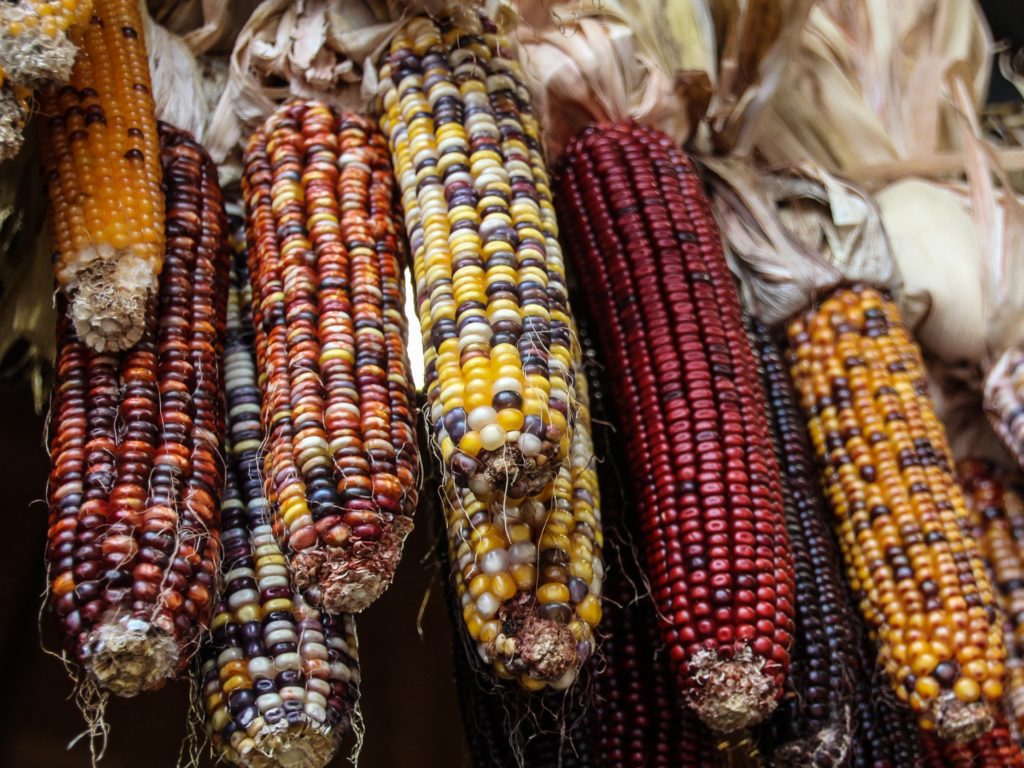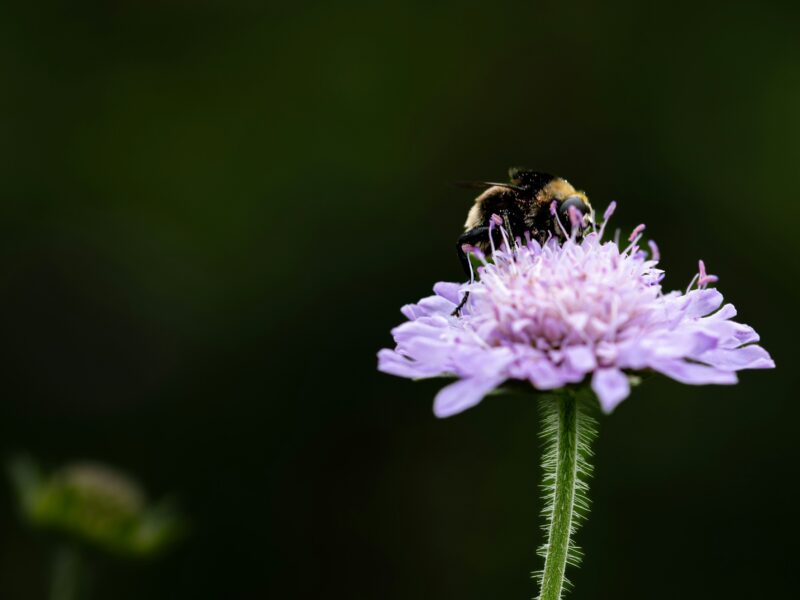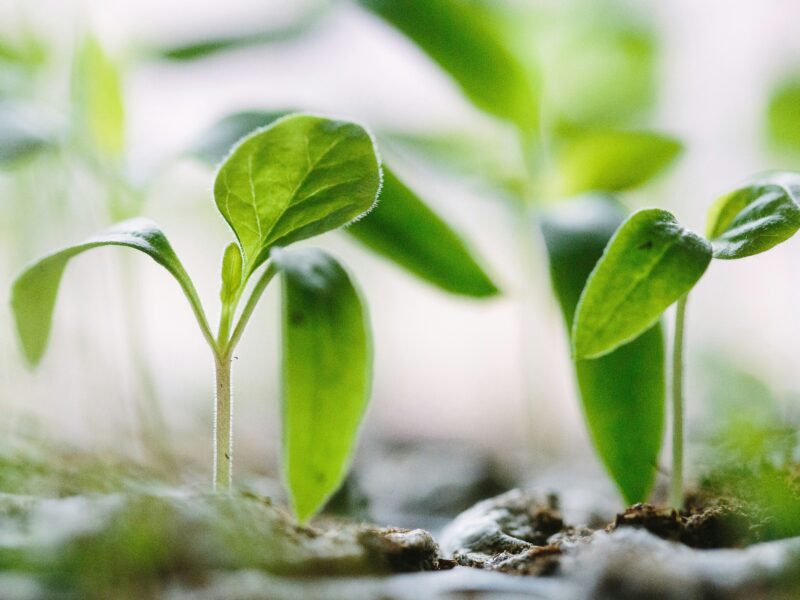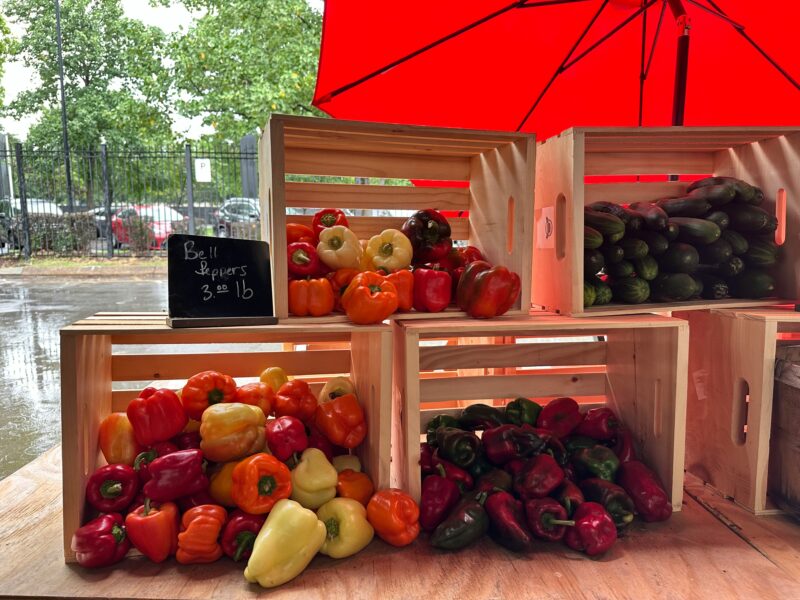Pumpkin spice lattes aren’t the only thing to celebrate this month. September is also Organic Month! Behind every bite of delicious organic fall food you eat, there’s an organic farmer, pioneer, or brand to thank.
Organic for your health
For anyone new to organic, let’s review the definition.
The USDA Organic seal indicates that food has been grown in tandem with nature. Organic farmers must look out for the health of humans, animals, and the environment by avoiding the use of harmful substances like toxic persistent pesticides. Organic is the only label that guarantees you are avoiding the more than 700 toxic chemicals used in conventional food production.
Autumn is also the beginning of flu season and the time when our bodies are also susceptible to seasonal allergies. Staying healthy and boosting immunity is key, and one of the best ways to achieve this goal is to choose organic.
Research shows organic foods, body care products, and textiles are healthier than their conventional counterparts.
Highlights from the research:
When you skip the chemicals and eat organic seasonal foods, you’re all but guaranteeing a healthy start to the fall season.
The beginning of autumn is the perfect time to think about extending the bountiful organic harvest into the colder season. Eating with the season and preserving the harvest is the most effective way to save money on organic food and stay healthy. We’ve uncovered 10 ways to eat organic food far into the winter, when organic produce is more expensive and not as readily available.
Fall harvest
Let’s dive into the wonderful world of harvesting.
Harvesting is like a celebration of nature’s bounty, and it’s such a joyful word. It derives from the Old English word “haerfest,” orautumn. It’s all about reaping the rewards of our hard work, gathering up the goodness that Mother Nature has been growing for us, and storing it for the season ahead.
This season is all about abundance and joy, a culmination of many months of dedication and nurturing. It’s a time to celebrate with traditions and festivals that express gratitude for the crops and food that grace our tables. Thanksgiving, for example, is one big thank-you to the harvest.
Now, let’s talk about the stars of the fall harvest show – fruits and veggies.
Fall is a season of plenty, and there’s a cornucopia of other delectable delights to enjoy, like pumpkins, corn, apples, zucchini, squash, beets, carrots, green beans, cabbage, kale, broccoli, celery, brussels sprouts, grapes, pears, and pomegranates. It’s like a treasure chest of flavors waiting to be discovered!
Fall foods for your health
“Let food be thy medicine and medicine be thy food” is not just a well-known quote from Hippocrates. It’s also a guide for selecting organic fall produce. We recommend looking for foods rich in essential nutrients.
Use this list to shop for organic fall produce:
If you’re new to eating organic proteins and vitamin D–rich foods, options from our brand partners include organic dairy products from Stonyfield, Organic Valley, Horizon, and Alden’sand organic eggs from Egg Innovations, Handsome Brook Farms, and Pete & Gerry’s. Applegate carries several organic meat options that readily available across the U.S., and Patagonia offers wild smoked salmon.
In addition to focusing on organic foods and drinks, you can also add organic supplements to your daily regimen for staying healthy. Increase your intake of herbs, adaptogens, antioxidants, and vitamins using our recommended organic supplements, from Megafoods and Garden of Eden.
Organic fall harvest is climate-friendly
When climate change and the climate crisis take center stage in our lives, we must recognize the pioneering efforts of organic farmers and ranchers who have long been at the forefront of sustainable agriculture. Well before these topics gained prominence in the media and during family meals, these dedicated individuals were diligently crafting and implementing rigorous production systems aimed at safeguarding the environment, animal welfare, and human health.
Indeed, the organic farming community has always been committed to a higher standard. Under the guidance of the Organic Foods Production Act, organic producers must not onlymaintain but actively enhance the natural resources in and around their farms. This includes developing plans to rejuvenate soil health while preserving water, wetlands, and wildlife habitats. The results of their unwavering dedication are nothing short of remarkable. They include:
While climate change and the climate crisis may have found their way into our daily discourse, organic farmers and ranchers have been quietly and diligently leading the charge towards a more sustainable, resilient, and environmentally responsible future. Their efforts not only safeguard our planet but also provide a blueprint for a healthier, more sustainable world that benefits us all.
To help you find organic produce, we recommend shopping directly from your local farmer by joining a community-supported agriculture organization, or CSA, or visiting a farmer’s market.
Choosing fresh organic produce is a matter of personal health as well as a conscientious choice for the planet and future generations. When we choose fresh organic produce, we nourish our bodies with wholesome, pesticide-free goodness andcontribute to a more sustainable and environmentally friendly food system that prioritizes health, sustainability, and the well-being of the planet.









